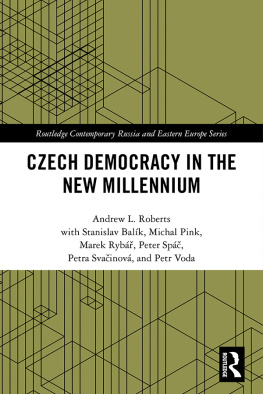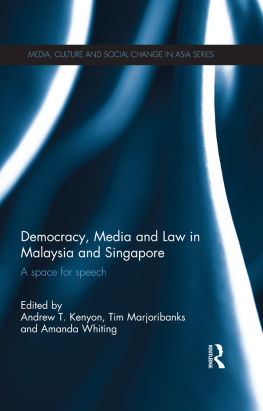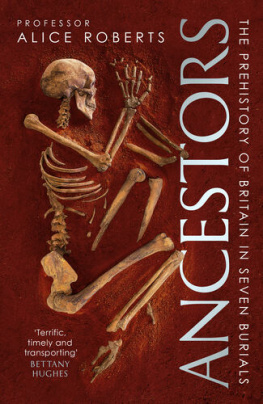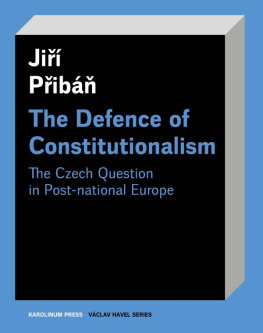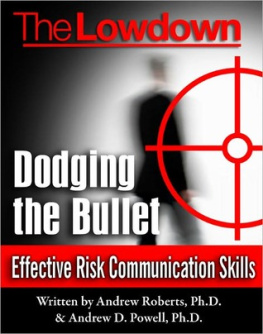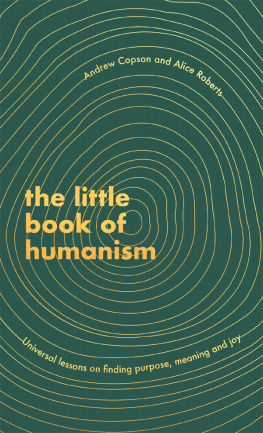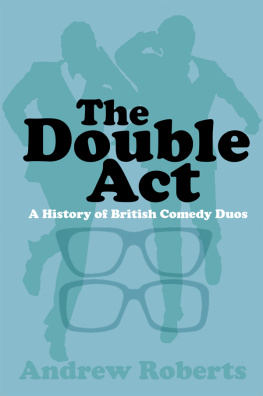Czech Democracy in the New Millennium
This book assesses the quality of Czech democracy relative to both its postcommunist peers and older EU members. Motivated by the authoritarian tendencies and illiberal outcomes in the postcommunist region, it explores the extent to which the Czech Republic is genuinely an outlier within the region and why.
The book elaborates on an original conception of democratic quality that emphasizes three aspects of governance: citizen rule, political equality, and good citizenship. The authors show that while the Czech Republic falls short of Western democracies on these standards, it does perform better than most of its peers. The book includes original data on campaign promises, dual mandates, legislative productivity, the wealth of MPs, the opinions of millionaires, womens representation, and the stability of public preferences along with comparative analyses of a host of other indicators.
The book will appeal to those interested in the politics of Eastern Europe and new democracies, those working in the rapidly growing fields of democratic quality and populism, and NGOs concerned with the development of new democracies around the world.
Andrew L. Roberts is Associate Professor of Political Science at Northwestern University, USA. His research focuses on democratic quality and representation with particular attention to the postcommunist region. He has published numerous articles in political science journals as well as three books, The Quality of Democracy in Eastern Europe, The Thinking Students Guide to College, and From Good King Wenceslas to the Good Soldier Svejk.
Routledge Contemporary Russia and Eastern Europe Series
The Russian Economy under Putin
Edited by Torbjrn Becker and Susanne Oxenstierna
New Conservatives in Russia and East Central Europe
Edited by Katharina Bluhm and Mihai Varga
Civil Society, Social Change, and a New Popular Education in Russia
W. John Morgan, Irina N. Trofimova, and Grigori A. Kliucharev
The Russian Economic Grip on Central and Eastern Europe
Edited by Ognian Shentov, Ruslan Stefanov and Martin Vladimirov
Law and Power in Russia
Making Sense of Quasi-Legal Practices
Hvard Bkken
Putins Third Term as Russias President, 201218
J L Black
Soviet and Post-Soviet Sexualities
Edited by Richard C. M. Mole
De facto States in Eurasia
Edited by Tom Hoch and Vincenc Kopeek
Czech Democracy in the New Millennium
Andrew L. Roberts with Stanislav Balk, Michal Pink, Marek Ryb, Peter Sp, Petra Svainov, and Petr Voda
Series url: www.routledge.com/Routledge-Contemporary-Russia-and-Eastern-Europe-Series/book-series/SE0766
Czech Democracy in the New Millennium
Andrew L. Roberts
with Stanislav Balk, Michal Pink, Marek Ryb, Peter Sp, Petra Svainov, and Petr Voda
First published 2020
by Routledge
2 Park Square, Milton Park, Abingdon, Oxon OX14 4RN
and by Routledge
52 Vanderbilt Avenue, New York, NY 10017
Routledge is an imprint of the Taylor & Francis Group, an informa business
2020 Andrew L. Roberts
The right of Andrew L. Roberts to be identified as author of this work has been asserted by him in accordance with sections 77 and 78 of the Copyright, Designs and Patents Act 1988.
All rights reserved. No part of this book may be reprinted or reproduced or utilized in any form or by any electronic, mechanical, or other means, now known or hereafter invented, including photocopying and recording, or in any information storage or retrieval system, without permission in writing from the publishers.
Trademark notice: Product or corporate names may be trademarks or registered trademarks, and are used only for identification and explanation without intent to infringe.
British Library Cataloguing-in-Publication Data
A catalogue record for this book is available from the British Library
Library of Congress Cataloging-in-Publication Data
A catalog record has been requested for this book
ISBN: 978-0-367-28076-5 (hbk)
ISBN: 978-0-429-29954-4 (ebk)
Typeset in Times New Roman
by Wearset Ltd, Boldon, Tyne and Wear
Contents
The first Czech President, Tom Garrigue Masaryk, famously proclaimed that Czechoslovak democracy would be safe only after 50 years of peace. Unfortunately, the First Republic that he helped to found was overcome by external threats after only one generation had passed. His proposition was never really tested.
This book was conceived soon after the first generation of a new Czech democracy had concluded. It was around this moment that cracks started to appear in what seemed to be the stable facade of Czech democracy. This was a surprise. Just about all observers of Czech politics had predicted growing pains during the transition as the country had to build new political and economic institutions. But accession to the European Union in 2004 seemed to signal the end to these growing pains. Democracy had surely been won as Masaryk predicted.
There is debate about the severity of the problems that started to appear in the 2000s and 2010s. A short litany would include the breakdown of what had been a stable party system and the rise of populist and outsider parties, ineffective, corrupt, and out-of-touch governments, a high degree of public distrust of and disaffection from the political system, and the increasing influence of the very rich culminating in the ascension of the countrys second-richest man to the premiership (see also Hanley 2014).
However, many of these negative trends have not been adequately documented or confirmed. Moreover, some may be typical of democracies and may give Czech observers pause mainly because of their novelty. And in some cases, the Czech Republic may be performing well in international comparisons even if things could be better. Indeed, democracy seems to be suffering across the world and it is unclear if the Czech Republic has suffered more or less than others.
The aim of the research project on which this book is based was to provide new data and analyses of the functioning of Czech democracy and to situate it in comparison to its postcommunist peers and its new European partners. We wished to consider several aspects of its democratic functioning that had to date received less attention. These included the degree to which citizens genuinely rule and the extent of inequalities in the political system, especially the influence of the very rich. As the project progressed we also thought more about the role of citizens in recent developments and whether they were part of the problem or the solution. We have joined these three areas of research into a new conception of democratic quality that guides this book.
It is difficult to succinctly describe the findings of our research. We discovered both positives and negatives in Czech democracy in all three areas of our study citizen rule, political inequalities, and citizen quality. We would highlight a few that seemed most novel.
On citizen rule, we gathered original data on campaign promises and their fulfillment, dual mandates, party switching, and legislative productivity and we produced new analyses of the clarity of political manifestoes in addition to putting trends in party system fragmentation and volatility in comparative perspective. Among the surprising findings were quite negative results on the fulfillment of promises and the holding of dual mandates, but not as alarming ones for legislative effectiveness.


